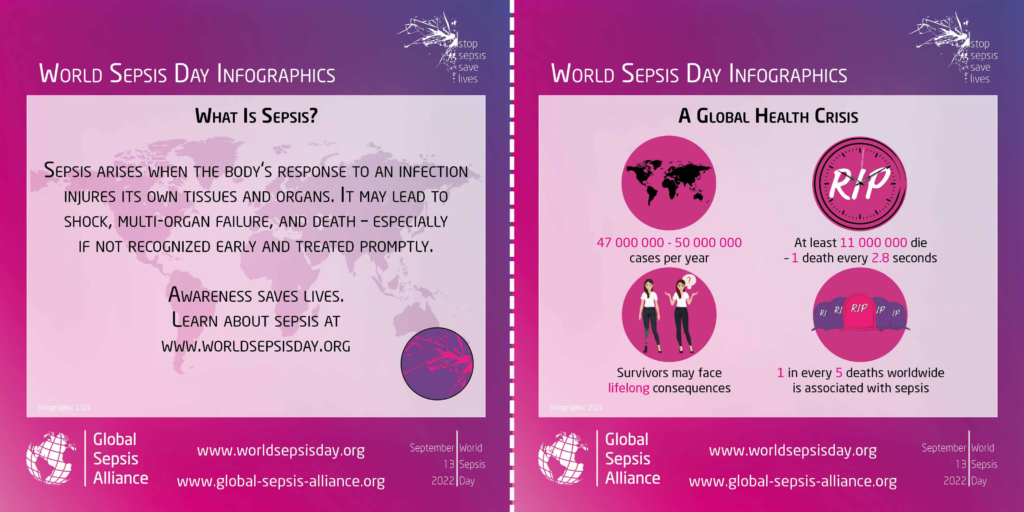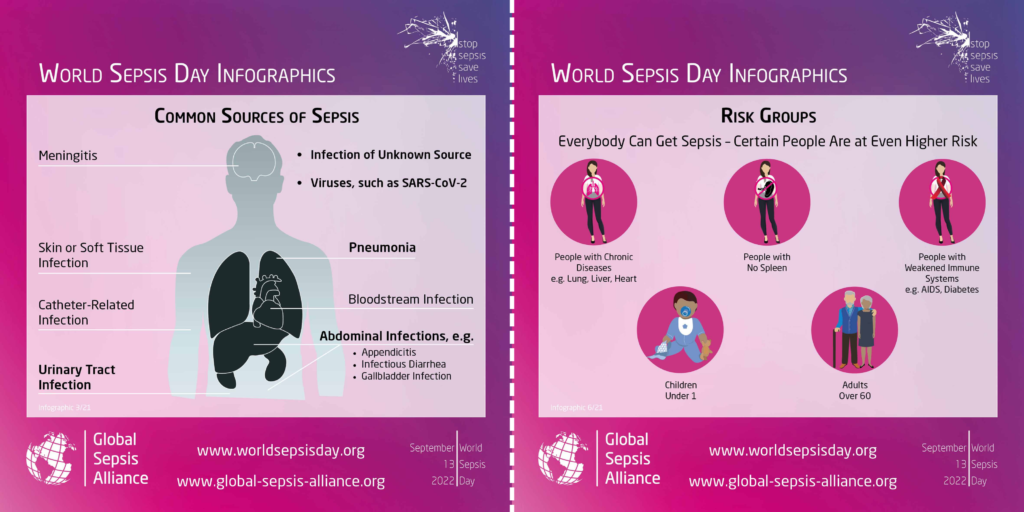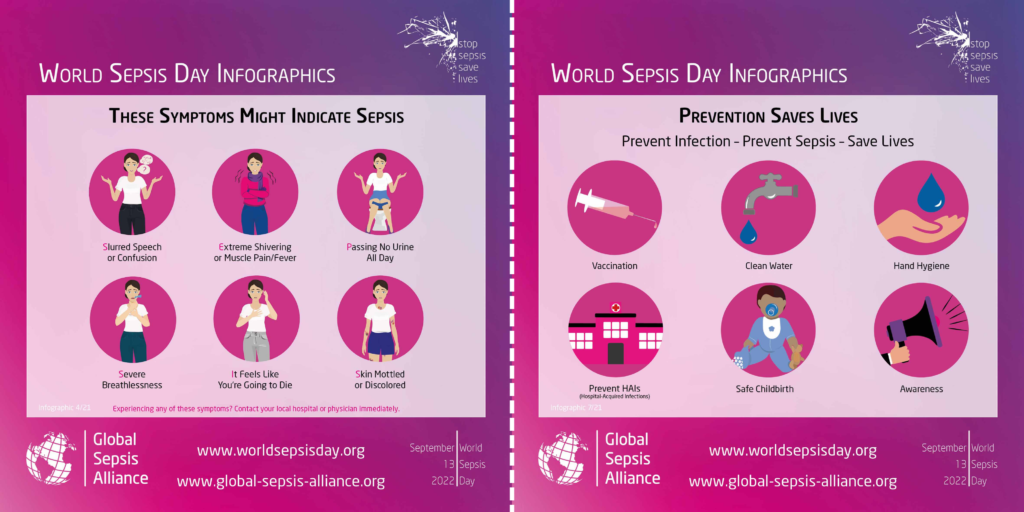World Sepsis Day - Raising Awareness of Sepsis
The 13th September is World Sepsis Day and is part of a UK-wide Sepsis Awareness Month in September. Initiated by the Global Sepsis Alliance in 2012, it aims to raise sepsis awareness by highlighting the symptoms of this potentially deadly condition and help to avoid unnecessary deaths.
Awareness helps to save lives and on this day every year, events are taking place all over the world to raise awareness of the condition. These events range from medical education talks to fundraising events such as the ‘pink picnics’ campaign. There are also plenty of online events taking place with many campaigns happening across social media.
It is more important than ever to raise awareness of sepsis as recent figures suggest that the number of people developing sepsis is increasing. It is now estimated that sepsis is the cause of 1 in 5 deaths around the world, with 11 million people a year dying from sepsis. In 2016-17 hospitals in Wales recorded a total of 12,589 sepsis cases compared to 11,457 in 2014-15, an increase of roughly 10%.

Below, we break down what sepsis is and how our specialist medical negligence solicitors can help you if you’ve been affected.
What is sepsis?
Sepsis is a rare but potentially life-threatening illness caused by the body’s response to an infection. It develops when chemicals released by the immune system into the bloodstream to fight an infection cause inflammation throughout the entire body instead. If not treated quickly, sepsis can lead to septic shock and result in multiple organ failure and death.
Infections which can cause sepsis include:
- Urine infections
- Appendicitis
- Pneumonia
- Peritonitis
- Cellulitis
- Meningitis
- Encephalitis
- Endocarditis
- Osteomyelitis

While anyone can get sepsis, regardless of how healthy they are, certain people are at an even higher risk, including:
- Children under the age of 1
- Adults over 60
- People without a spleen
- People with chronic diseases
- People with weakened immune systems
There are a number of symptoms that might indicate sepsis which can include:
- Slurred speech
- Extreme shivering or muscle pain/fever
- Passing no urine all day
- A feeling like you’re going to die
- Severe breathlessness
- Skin mottled or discoloured
Preventing sepsis deaths
Sepsis is the cause of around 11 million deaths worldwide every year.
It is not commonly known that sepsis can be prevented by vaccination and clean care and that early recognition and treatment reduces sepsis mortality by 50%. The World Sepsis Day website states that the lack of knowledge of sepsis makes it the number one preventable cause of death worldwide.

How is the NHS dealing with sepsis?
In March 2019, the NHS released The Long-Term Plan to reduce the toll of, what the plan referred to as, the ‘hidden killer’ sepsis. The plan introduced changes to medical practices – one example is that hospital staff must now alert senior doctors if patients with suspected sepsis do not respond to treatment within an hour.
The NHS has significantly improved spotting sepsis, with screening rates in emergency departments increasing from 78% in 2015 to 91% in 2018. From 1st April 2019, a change in the NHS standard contract across England now requires all NHS trusts to comply with the new sepsis guidance.
Dr Tim Nutbeam, Clinical Advisor for the Sepsis Trust, welcomes this initiative. If delivered correctly, it will ensure rapid and effective treatment for the patients who need it most, whilst ensuring that senior clinical decision-makers are supported in making informed, balanced decisions in relation to the prescribing of antibiotics.
It is hoped that such practices will become commonplace across the UK as awareness of the condition grows. Certainly, World Sepsis Day and the events being held across the world will help to raise awareness of this potentially deadly condition and the importance of early recognition. However, it is inevitable that this hidden killer will sadly claim unnecessary deaths in the years to come.
If you or a family member have been affected by a delay or failure to diagnose or treat sepsis, you may be entitled to compensation. If you’re considering taking legal action, our specialist medical negligence solicitors can help you get the specific support or advice you need at this difficult time.
For further information, please contact a member of our medical negligence team below.
*Infographics sourced from the World Sepsis Day website. You can find out more information about World Sepsis Day as well as download a range of resources here.